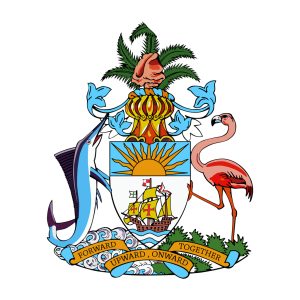Since 2019, The Bahamas is the global leader in e-money when it launched its “sand dollar” – a digital version of the Bahamas Dollar and controlled by the central bank – effectively beating China’s “digital renminbi” by six months. PricewaterhouseCoopers (PwC) has given the Sand Dollar the highest ranking – above even China’s digital yuan – in a report ranking Central Bank digital currencies.
Why The Bahamas?
But this stunning feat wasn’t just a PR gag to highlight the island jurisdiction’s commitment to innovation. The Bahamas is an archipelago consisting of 700 islands scattered across 470,000 km2 (180,000 square miles) of ocean space in the Caribbean. The challenges for payment systems using physical cash for such a vast archipelago are understandable. As anywhere else, banks have been scaling back the brick and mortar infrastructure over the past years.
The GDP of the Bahamas per capita income is the third highest in the Americas after the US and Canada, with a 90% penetration for mobile devices, making the country an ideal ground for the release of the world’s first CBDC. In addition to ensuring a reliable and safe payment system that’s available a 24/7 to all Bahamas residents, the Sand Dollar is not only meant to modernize the payment system but also to improve financial inclusion, reduce service delivery costs, increase transactional efficiency, and make private wallet systems interoperable.
A Giant in Financial Services
While The Bahamas may be counted on the smaller side of countries (ranked 155 in terms of landmass of 195 countries, behind Kuwait (152) or Israel (149) and rank 170 in terms of population, behind Malta (167) but before Iceland (172)), the island jurisdiction has been and will continue to be a giant in financial services:
- The Bahamas SMART Funds are internationally a popular and well-established solution particularly in the private client space
- The new Bahamas Digital Assets and Registered Exchanges (DARE) Act is considered a “monumental” piece of legislation as it strikes a fine balance between innovation and a robust regulatory framework
- The new Bahamas Commercial Enterprises Act has been designed attract and foster certain industries in The Bahamas – including captive insurance, reinsurance, mutual fund administration and wealth management
- Location, Location: A trade and wealth management hub conveniently accessible for onsite inspections and meetings. A stunning tourism, highly coveted domicile and operational base for family offices and many other types of organizations. More ultimate beneficial owners and directors of those entities will move to The Bahamas to create certainty with respect to fulfilling the substance requirements.
- A firm commitment to ease of doing business: As Elsworth Johnson, Minister of Financial Services, Trade & Industry and Immigration explains in this Roundtable, ease of doing business is not just a concept but brought to fruition through an aggressive public sector digitization initiative
- And the People: Friendly and professional, with a wealth of knowledge and experience who have been in the industry for very significant periods of time, or have chosen to relocate to The Bahamas. That wealth of experience spans not just one particular pillar of financial services but all pillars – banking, trust, insurance and securities.
Article Credit: Opalesque


